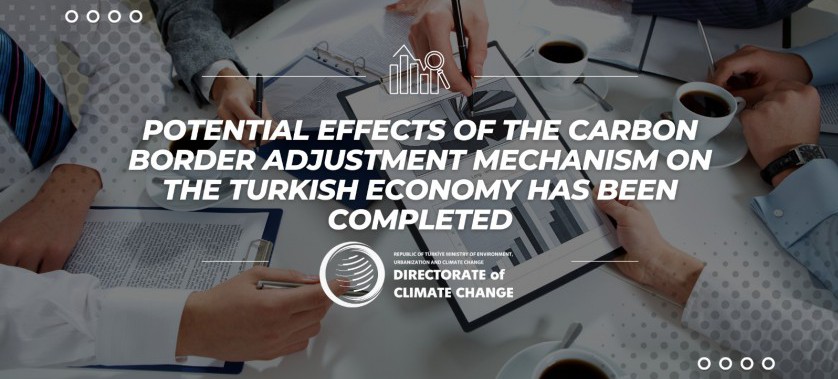-
21 July 2023
Economy”, which foresees the effects of the Carbon Border Adjustment Mechanism (CBAM) on the Turkish economy in general and certain sectors under different EU ETS and national carbon pricing scenarios has been completed.
According to the results of the study, it is estimated that the iron and steel sector would be the most affected by CBAM, and the cement sector will be the second most affected sector. According to the model results, it has been reported that the national carbon pricing application would reduce CBAM costs.
Taking into account the embedded Scope 1 and Scope 2 emissions in target products exported to the EU, assuming a CBAM fee of EUR 75/tCO2e, the potential annual SKDM costs for the industry reach EUR 138 million in 2027. However, if the CBAM fee rises to EUR 150/tCO2e, these costs were estimated to rise to EUR 2.5 billion per year by 2032. This results in an increased CBAM fee burden for the industries covered over time.
If Türkiye were to implement a domestic carbon price of EUR 20/tCO2e, the potential CBAM costs would decrease to EUR 56 million per year in 2027. In the scenario of a higher domestic carbon price at EUR 50/tCO2e, the CBAM charges would drop to EUR 1.08 billion annually by 2032, reducing CBAM costs by EUR 1.5 billion.
It is stated in the report that by implementing its own ETS, Türkiye would be able to internalize these costs as ETS revenues instead of indirectly bearing the CBAM costs, and these would provide an opportunity for our exporters to be one step ahead in terms of competitiveness in our trade with the EU, with the choice of production technologies with lower carbon emissions.
In cooperation with the European Bank for Reconstruction and Development (EBRD), the study titled “Potential Effects of the Carbon Border Adjustment Mechanism on the Turkish
For report click here



